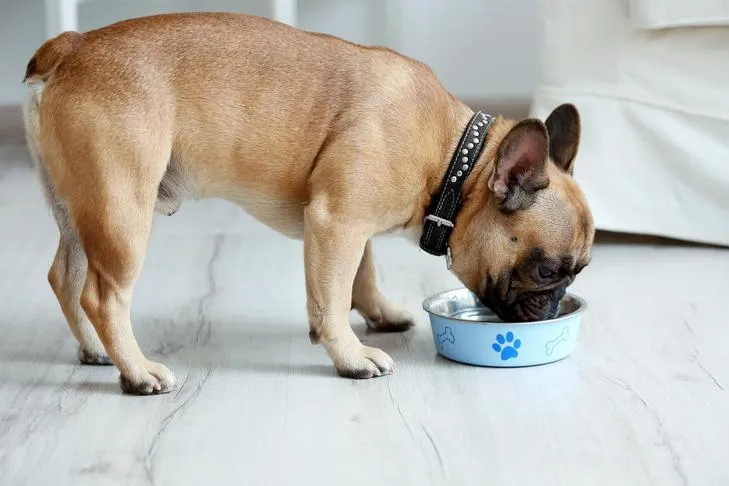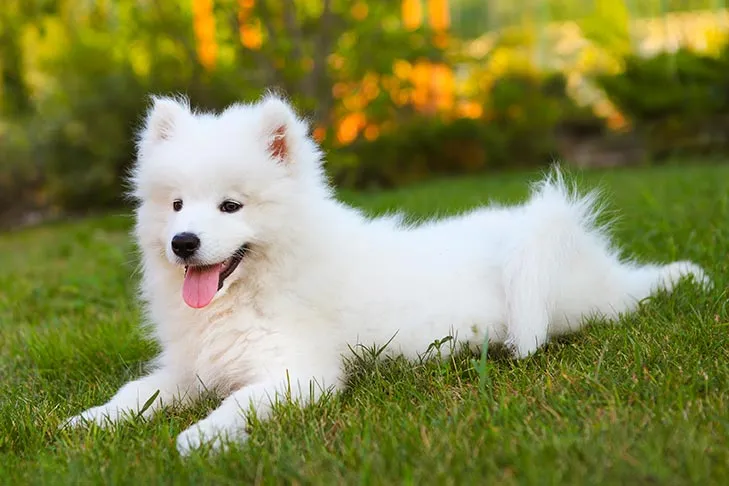As a loving pet parent, you might often wonder What Human Food Can You Feed Dogs safely. Sharing your meals with your furry friend can be a delightful experience, but it’s crucial to know which foods are beneficial and which can be harmful. While a dog’s primary diet should consist of high-quality dog food, certain human foods can offer healthy treats and nutritional boosts when given in moderation. This guide from Dog Care Story will help you navigate the do’s and don’ts of sharing your pantry with your canine companion, ensuring their health and happiness. what foods are good to feed your dog Always remember to consult your veterinarian before introducing new foods into your dog’s diet, especially if they have any existing health conditions or dietary sensitivities.
Safe Human Foods for Dogs: Beneficial Bites
Many everyday kitchen staples can be safely shared with your dog, offering a range of vitamins, minerals, and other nutrients. Here’s a look at some of the best human foods that can be fed to dogs, along with important considerations for each.
Grains and Carbohydrates
Not all grains are bad for dogs. In fact, many can be a good source of energy and fiber.
Bread
Small quantities of plain bread are generally safe for dogs, provided it’s free from spices, nuts, or harmful additions like raisins. While bread doesn’t offer significant nutritional value, a small, unseasoned piece won’t cause harm. Homemade bread without preservatives is a better option than store-bought varieties, which often contain unnecessary additives. However, due to its carbohydrate and calorie content, bread should be a rare treat, not a dietary staple.
Corn
Often found as a common ingredient in commercial dog foods, corn is safe for dogs. However, the cob itself can pose a choking hazard or cause an intestinal blockage. Always ensure any corn you offer your dog is removed from the cob. It provides essential nutrients and is a good source of energy for active dogs.
Popcorn
Plain, air-popped popcorn, without butter, salt, or artificial flavorings, can be a safe and fun treat for your dog in moderation. It contains riboflavin and thiamine, which contribute to good eye health and digestion, along with small amounts of iron and protein. Ensure all kernels are fully popped to prevent choking.
Quinoa
This highly nutritious grain is now featured in some high-quality dry dog foods. Quinoa offers a robust nutritional profile, making it an excellent alternative to starches like corn, wheat, and soy often used in kibble. It’s packed with protein and fiber, promoting digestive health and sustained energy.
Wheat or Grains
Contrary to some popular beliefs, most dogs do not need to be on a grain-free diet. Grains such as wheat and corn are valuable sources of protein, essential fatty acids, and fiber. If your dog has a diagnosed grain allergy, avoidance is necessary, but for most dogs, grains are a healthy part of a balanced diet. Always consult your veterinarian if you suspect your dog has food allergies.
Proteins and Healthy Fats
These foods provide essential building blocks for muscle and energy, but preparation is key.
Cashews
In small amounts, unsalted cashews are acceptable for dogs. They contain beneficial nutrients like calcium, magnesium, antioxidants, and proteins. However, cashews are higher in fat than some other nuts, so overfeeding can lead to weight gain. Offer them as an occasional treat, ensuring they are plain and unsalted.
Eggs
Fully cooked eggs are an excellent source of protein and can even help soothe an upset stomach. It’s vital to cook eggs thoroughly, as raw egg whites contain avidin, an enzyme that can interfere with biotin absorption, potentially leading to a biotin deficiency over time. Scrambled or hard-boiled eggs are safe and nutritious options.
Fish (Salmon, Sardines, Tuna)
Fish, particularly salmon and sardines, provides beneficial omega-3 fatty acids and amino acids, boosting your dog’s health, promoting joint and brain health, and strengthening the immune system. Salmon is rich in vitamins and protein. Sardines are excellent due to their soft, digestible bones, which add extra calcium. Always ensure fish is fully cooked and cooled. For salmon and tuna, remove all bones. With the exception of sardines, carefully debone all fish before serving. Limit fish intake to no more than twice a week. Cooked fresh tuna, in moderation and prepared in water (not oil) without spices, is a good source of omega-3s for heart and eye health. Canned tuna should be given sparingly due to mercury and sodium content.
Ham
While not the healthiest choice due to its high sodium and fat content, a very small, plain piece of cooked ham can be given occasionally. It should not be a regular part of your dog’s diet. Always remove excess fat and never offer seasoned or cured ham.
Peanut Butter
Unsalted, raw peanut butter is a fantastic source of protein, heart-healthy fats, niacin, and vitamins B and E. It’s a popular treat for dogs, often used to administer medication. Crucially, always check the label for xylitol, a sugar substitute that is highly toxic and potentially fatal to dogs. Only offer xylitol-free peanut butter.
Peanuts
Unlike almonds, plain, unsalted peanuts are safe for dogs. They are rich in good fats and proteins. However, like cashews, they should be given in moderation to avoid excessive fat intake, which can lead to pancreatic issues. Always opt for unsalted varieties.
Pork
Cooked, unseasoned pork is a highly digestible protein source, rich in amino acids. While it contains more calories than some other meats, it can be a good option for dogs, particularly those with allergies to other proteins. Ensure all bones are removed and that the meat is plain, without excessive fat, salt, or seasonings like onions or garlic, which are harmful to dogs.
Shrimp
Cooked shrimp, with the shell, head, tail, and legs completely removed, can be a healthy snack. Shrimp are low in fat, calories, and carbohydrates, while being high in antioxidants, vitamin B-12, and phosphorus. Offer only a few shrimp occasionally.
Turkey
Plain, cooked turkey is safe for dogs. Always remove excess fat and skin, and meticulously check for any bones. Poultry bones can splinter during digestion, leading to internal blockages or tears. Avoid any turkey with seasonings, especially onions, garlic, or excessive salt.
Dairy and Sweet Treats
These items require caution and moderation.
Cheese
Many dogs love cheese, and it can be a great treat in small to moderate quantities, assuming your dog isn’t lactose intolerant (a rare but possible condition). Opt for lower-fat varieties like cottage cheese or mozzarella to prevent excessive fat intake. Many pet stores also offer dog-specific dried cheese chews.
 All American Dog resting its head on the kitchen table looking at cheese.
All American Dog resting its head on the kitchen table looking at cheese.
Honey
Honey is a natural sweetener packed with nutrients like vitamin A, potassium, calcium, magnesium, copper, and antioxidants. Small amounts of local honey might even help dogs with seasonal allergies by introducing small amounts of pollen, potentially building immunity. Beyond consumption, honey can also be used topically for minor burns and superficial cuts.
Milk
Dogs can have milk, but with caution. Many dogs are lactose intolerant and may experience digestive upset. If you choose to offer milk, do so in very small amounts and monitor for symptoms like diarrhea or gas. For most dogs, water is always the best hydration choice.
Yogurt
Plain yogurt, without added sugars or artificial sweeteners, can be a healthy snack. If your dog tolerates dairy, the active bacteria in yogurt can provide beneficial probiotics, supporting a healthy digestive system. Always choose plain, unflavored yogurt. what are good foods for dogs to eat
Fruits and Vegetables
These can be excellent sources of vitamins and fiber.
Coconut
This tropical fruit contains lauric acid, known for its antibacterial and antiviral properties. Coconut can also help with bad breath and may alleviate certain skin conditions like hot spots, flea allergies, and itchy skin. Both coconut milk and coconut oil are safe for dogs. However, always ensure the hard, fibrous outer shell is removed, as it can be a choking hazard.
 French Bulldog eating from a bowl at home.
French Bulldog eating from a bowl at home.
Human Foods Dogs Can’t Eat: Dangerous and Toxic Items
While many human foods are safe, it’s equally important—if not more so—to be aware of those that are dangerous and potentially toxic to dogs. Ingestion of these foods can lead to serious illness or even be fatal. Always keep these items out of your dog’s reach and consult your veterinarian immediately if you suspect your dog has consumed any toxic food.
- Avocado: Contains persin, which can cause vomiting and diarrhea in dogs.
- Alcohol: Highly toxic, even in small amounts, causing severe symptoms including respiratory depression and death.
- Onions, Garlic, Chives, and Leeks: These alliums can cause red blood cell damage, leading to anemia.
- Chocolate: Contains theobromine, which is toxic to dogs, with darker chocolate being more dangerous.
- Coffee and Caffeine: Like chocolate, caffeine can cause hyperactivity, elevated heart rate, and seizures.
- Grapes and Raisins: Highly toxic, capable of causing acute kidney failure in dogs, even in small quantities.
- Macadamia Nuts: Can cause weakness, vomiting, tremors, and hyperthermia.
- Xylitol (Sugar Substitute): Found in many sugar-free products, it causes a rapid release of insulin, leading to hypoglycemia, liver failure, and can be fatal. This is why checking peanut butter labels is critical.
- Cooked Bones: While raw bones can be given with caution, cooked bones can splinter and cause internal damage or blockages.
- Fat Trimmings and Gravy: High fat content can lead to pancreatitis.
- Salt: Excessive salt can lead to sodium ion poisoning, causing vomiting, diarrhea, tremors, seizures, and even death.
- Yeast Dough: Can rise in the stomach, causing bloating and potentially life-threatening gastric dilatation-volvulus (GDV), and also produces alcohol as it ferments.
 Samoyed puppy laying in the grass outdoors.
Samoyed puppy laying in the grass outdoors.
General Guidelines for Feeding Human Foods to Dogs
When offering human foods to your dog, adherence to a few basic rules will help ensure their safety and health.
- Moderation is Key: Human foods should always be treats, making up no more than 10% of your dog’s daily caloric intake. The bulk of their diet should come from a balanced, high-quality dog food.
- Plain and Unseasoned: Avoid any seasonings, spices, salt, sugar, or artificial flavors. What tastes good to us can be harmful or irritating to a dog’s digestive system.
- Proper Preparation: Always ensure foods are cooked appropriately (if necessary), cut into small, manageable pieces to prevent choking, and all bones, seeds, and pits are removed.
- Introduce Slowly: Introduce new foods one at a time and in small quantities to monitor for any adverse reactions like vomiting, diarrhea, or allergies.
- Consult Your Vet: Before making any significant changes to your dog’s diet or if you have any concerns, always consult your veterinarian. They can provide personalized advice based on your dog’s specific health needs, age, and breed. what to feed dog that will not eat
Knowing which human foods can you feed dogs is an important part of responsible pet ownership. By following these guidelines and being mindful of potential hazards, you can safely share some of your favorite healthy treats with your beloved canine companion, enriching their diet and strengthening your bond. Prioritizing their safety and health will always lead to a happier, healthier dog. what is best for dogs to eat
